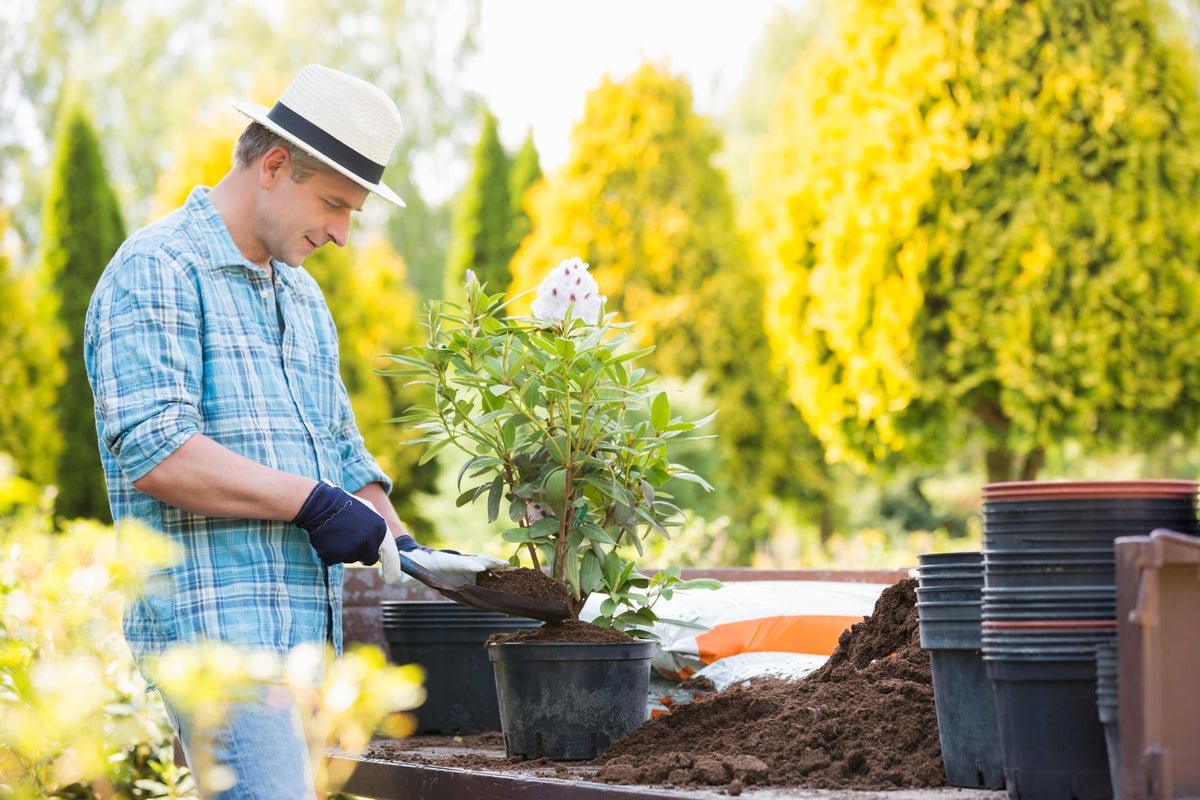Urban gardeners have often been looking for ways to maximise their small spaces, but solutions have been hard to find.
However, a recent innovation has been trending in recent weeks which aims to solve that problem.
Several gardens at last week’s RHS Hampton Court Palace Garden Festival focused on vertical gardening, including RHS Vertigro, designed by Adolfo Harrison and built by Life On Walls, which aims to re-imagine the possibilities of the urban vertical planting habitat and its place in our ever-warming and polluted towns and cities.
It was one of the standout exhibits which showcased what could be done in an urban setting with limited space.
Life On Walls founder Armando Raish, who runs online courses on how to create a living wall, says: “As a general rule for living walls, suitable plants can range from ground covers, small herbaceous shrubs and ferns and grasses, with an ultimate growth height of 60cm.
“It’s best to use 10-15cm pot sizes, which will give the plants enough room to grow into the available space. One can even plant edibles, such as strawberries, tomatoes, herbs and more.”
View this post on Instagram
Of course, if you want to grow climbers rather than smaller individual pockets of planting on bespoke living wall systems, there’s no shortage of trellis choices which will allow climbers, including clematis, roses and honeysuckle, to flourish in confined spaces, providing a boost of vivid colour and vibrant scent to smaller spaces.
If you don’t have borders in which to put your plants, there are many which will thrive in big pots, including some clematis, honeysuckle and climbing hydrangeas.
Trellis systems – whether wooden or metal – allow climbers to flourish in confined spaces, helping to transform urban balconies and rooftops into lush green vistas.
View this post on Instagram
And don’t rule out living walls of fruit and vegetables either, says Kate Cotterill, co-founder of heirloom seed company She Grows Veg with Lucy Hutchings, whose exhibit at the RHS Chelsea Flower Show this year featured sections on vertical growing.
She offers the following tips for veg growers who want to make the most of their vertical space:
Research your varieties
View this post on Instagram
“Make sure you have a handle on what’s suitable for vertical growing. Choose climbing varieties of peas and beans which will grow upwards as far as you let them.
“There are some really lovely smaller varieties of cucumbers, squashes and gourds that develop a smaller fruit, which are fantastic for training, either up a trellis, or you can construct your own tripod of supports with canes, or even over an arch.”
Suitable squash varieties include ‘Baby Boo’, which can be roasted whole or used as a little Halloween lantern, while the miniature cucumber ‘Dar’ produces smaller fruits which are excellent for salads and pickling, and ‘Dragon Egg’ bears cream coloured cucumbers which look like white eggs. They have tougher skins than regular cucumbers, so have a longer shelf life.
Consider living wall pockets
View this post on Instagram
“There are all sorts of little vertical growing pocket products you can buy which attach to a wall, and we love those,” says Ms Cotterill.
“We grow a lot of salads in these, as salad leaves and herbs are really well suited to that kind of thing. But you can also grow crops such as chard in them, you just harvest it younger. Chard, given the opportunity, will grow to enormous sizes and it’s a very productive crop.”
You can still sow fast-growing crops such as cut-and-come-again lettuce directly into your vertical pockets, she advises.
View this post on Instagram
“They only need a small amount of compost on top to get them to germinate and you can do successional sowing, even vertically. Once they’ve bolted, or they look like they’re over, whip them out and go again. You can do this all the way into autumn.”
Provide support
View this post on Instagram
If you have, for instance, climbing beans, make sure they are secured to a wigwam of canes, or trellis or another support. If the plant gets too big, most climbing bean varieties can be nipped off at the top.
Multi-sow
If you have a series of wall pockets, you can multi-sow different veg together, such as radish and beetroot, says Ms Cotterill.
“Radishes and beetroots do really well when they’re clustered together, so you don’t have to thin them out. Harvest one when it’s ready and that creates more room for the next one to grow bigger. You don’t have to be too fussy about thinning in a pouch or pot.”
Make use of edible flowers
Flowers can add fantastic colour to living walls, so if you are growing veg in wall pots or pouches, add nasturtiums and calendulas in zingy colours as interplanting.
View this post on Instagram
If you want to use contrasting colours of, say, acid green and deep burgundy, consider planting different varieties of lettuce in a chequerboard pattern for an eye-catching display.
Try the red Romaine variety ‘Outredgeous’ alongside the vivid green ‘Speckled Trout’.
#gardeners #maximise #small #spaces



